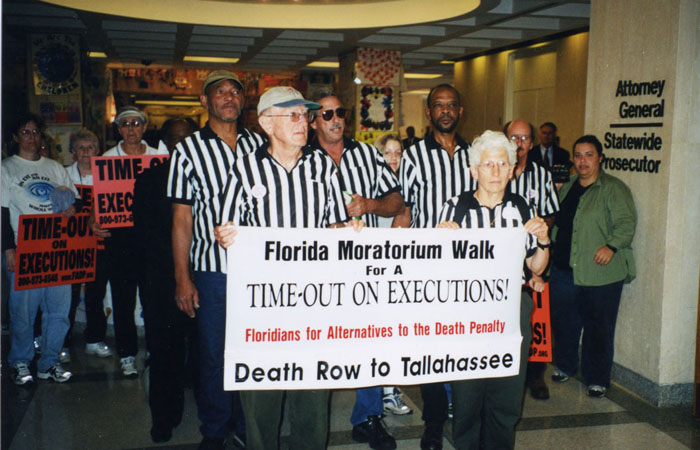Collections : [National Death Penalty Archive]
National Death Penalty Archive
Researchers, writers, activists, and records on capital punishment in the United States.
Search Constraints
Start Over You searched for: Online Content Online Content Remove constraint Online Content: Online Content Collecting Area National Death Penalty Archive Remove constraint Collecting Area: National Death Penalty ArchiveSearch Results
The following records were received from the Correctional Association of New York in August 2006, but have not yet been intellectually or physically integrated into the collection. An inventory of the records created by the staff of the Correctional Association is available.
Advocacy, 1977-2007, Undated 4.5 cubic ft.
Watt Espy amassed materials related to a variety of organizations advocating against capital punishment, for better prison conditions, for human rights, and for an improved and unbiased criminal justice system. The groups vary and may be secular or religious, national, statewide or local. Materials in this series include newsletters, execution alerts, appeals, meeting minutes, and brochures. In some instances, it is possible to determine that Espy was active within or supported a particular organization as his name appears in meeting minutes or related papers.
The New Jersey Proportionality Review, 1988-1992 3.4 cubic ft.
This series encompasses the Death Penalty Proportionality Review project in New Jersey.
Contains CSV datasets of American executions created during the Espy Project. Sets will be released by state over the course of the project. Information about the data fields is available here.
Includes Alaska, Alabama, Hawaii, Oregon, and Wyoming
